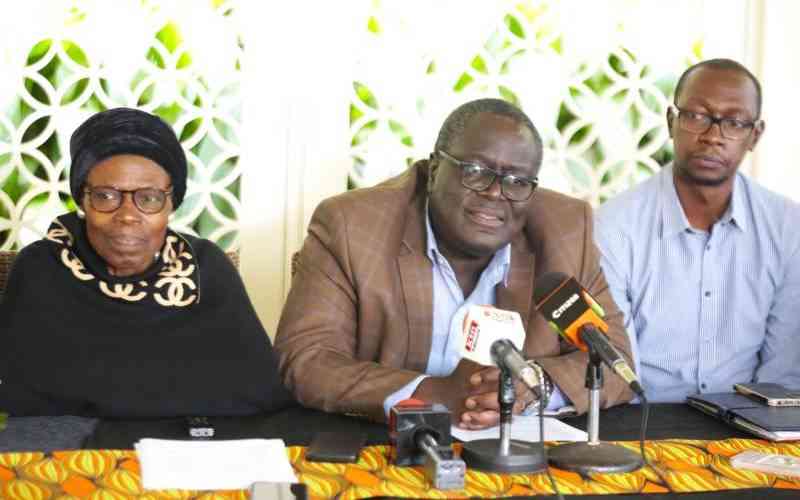NAIROBI: Oil-producing counties will get 20 per cent of the total revenues from the black gold, if a bill introduced by the national government in the National Assembly is enacted.
However, although clause 94 of the Petroleum (Exploration) and Production Bill 2015 states that a county shall be entitled to 20 per cent of the total oil revenues, it states that the amount cannot be twice the county’s annual allocation by the Commission for Revenue Allocation.
“County Government’s share shall be equivalent to 20 per cent of the Government’s share... Provided that the amount allocated in accordance to this sub section shall not exceed twice the amount allocated to the County Government by the Commission for Revenue Allocation in the financial year under consideration,” the Bill tabled on August 19 reads.
This means that a surge in oil production and world oil prices may not necessarily translate into more returns for the producing county.
Assuming that part of the much expected oil revenue was to start flowing today, it means that a county such as Turkana, which currently receives about Sh9 billion from the national government, cannot get double that amount, irrespective of the number of barrels of oil produced.
It also means that oil rich-counties may join other “well-endowed” counties that have been pushing for a “fairer” formula that takes into account each county’s contribution to the national purse.
The current formula for calculating county allocations only considers variables such as population, poverty index and land area.
The bill in its memorandum of objects and reasons also says that it will provide a framework for development of petroleum resources in the country. The bill also proposes to establish a national endowment fund into which a percentage of the oil revenues will be deposited.
“The bill seeks to provide a framework for the contracting, exploration and development of petroleum together with production of petroleum discovered within licensed petroleum exploration blocks,” the bill states.
“The petroleum profit shall be shared between the contractor and the Government in accordance with the petroleum agreement... The Government’s share of petroleum revenues exclusive of taxes shall be deposited into a dedicated petroleum fund, and managed in accordance with the Public Finance Management Act, the Constitution and any other relevant law,” the bill says.
The bill focuses attention on the complex relations between the national and county governments in the distribution of wealth.
The bill also gives local communities an equivalent of five per cent of the government’s share, but this should not exceed a quarter of the amount due to the county government in the financial year under consideration.
The Geneva-based Graduate Institute of International and Development Studies warned that lack of clear formula in distribution of oil revenues in Kenya could lead to conflict.
 The Standard Group Plc is a
multi-media organization with investments in media platforms spanning newspaper
print operations, television, radio broadcasting, digital and online services. The
Standard Group is recognized as a leading multi-media house in Kenya with a key
influence in matters of national and international interest.
The Standard Group Plc is a
multi-media organization with investments in media platforms spanning newspaper
print operations, television, radio broadcasting, digital and online services. The
Standard Group is recognized as a leading multi-media house in Kenya with a key
influence in matters of national and international interest.
 The Standard Group Plc is a
multi-media organization with investments in media platforms spanning newspaper
print operations, television, radio broadcasting, digital and online services. The
Standard Group is recognized as a leading multi-media house in Kenya with a key
influence in matters of national and international interest.
The Standard Group Plc is a
multi-media organization with investments in media platforms spanning newspaper
print operations, television, radio broadcasting, digital and online services. The
Standard Group is recognized as a leading multi-media house in Kenya with a key
influence in matters of national and international interest.









